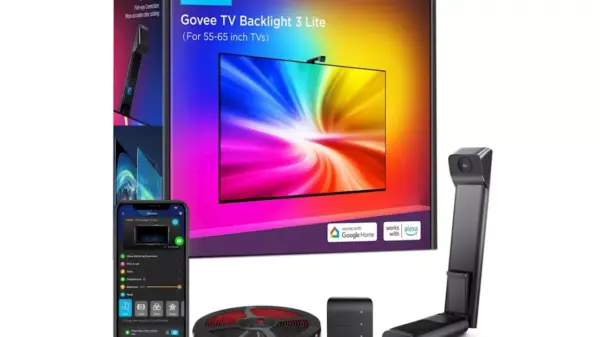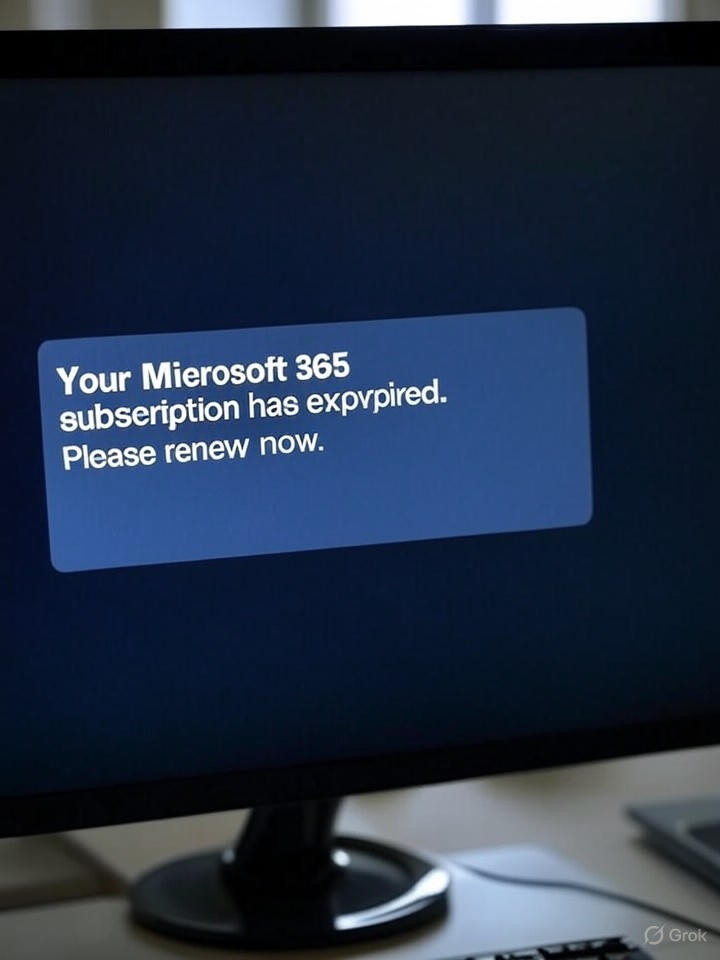UPDATE: Microsoft has just announced a controversial new feature in its ongoing battle for subscription renewals, testing intrusive full-screen ads during Windows 11 boot-up for users with expired or soon-to-expire Microsoft 365 subscriptions. This aggressive tactic is causing significant backlash among tech professionals and enterprise users who rely on seamless system access.
Beginning in July 2023, users booting up their Windows 11 devices are now met with a **full-screen notification** that halts the start-up process, demanding immediate attention. Dubbed a “nag screen,” this prompt informs users that their Microsoft 365 account “needs attention” and urges them to renew their subscription before they can access their desktops. Options include renewing immediately, dismissing the alert temporarily, or opting out of future reminders.
Critics are voicing concerns that this approach disrupts vital workflows, especially in sectors where uninterrupted access is critical, such as **finance and healthcare**. According to a report from BetaNews, users describe the new feature as “nagware,” likening it to turning their operating system into a billboard for Microsoft’s services.
The new prompt is currently being tested in Windows Insider builds, with the potential for wider rollout if feedback is favorable. However, early reactions from users on social media platforms like X (formerly Twitter) reveal widespread frustration over this tactic, which many believe could alienate loyal power users. Tech forums are buzzing with critiques, emphasizing that the prompt blocks the desktop until addressed, leading to concerns about productivity during important meetings.
Enterprise administrators are particularly alarmed, fearing that such interruptions could lead to operational delays. Imagine a team of analysts preparing for a critical presentation only to be stalled by a renewal demand—this is not just a nuisance; it poses a serious risk to business continuity.
To mitigate potential backlash, experts suggest that Microsoft could limit the frequency of these prompts, possibly showing them only once after expiration. Additionally, clearer opt-out options would help alleviate user frustration. A gHacks Tech News analysis warns that if users are repeatedly bombarded with these reminders, they may be pushed toward alternative solutions, including open-source office suites that could threaten Microsoft’s market dominance.
This aggressive strategy highlights a significant shift in how software giants monetize their ecosystems. With Microsoft 365 generating billions in revenue, retaining subscribers is essential, particularly as economic pressures force businesses to scrutinize Software as a Service (SaaS) spending. However, using OS-level interruptions to force renewals raises ethical questions about the boundaries of customer engagement and advertising.
Discussions on Reddit’s r/microsoft365 subreddit reveal anecdotal evidence of incorrect expiration notices affecting even paid-up users, further breeding distrust in Microsoft’s subscription model. An article from Archyde emphasizes the need for Microsoft to strike a balance between revenue goals and user goodwill, urging for transparent communication and user-controlled notifications to prevent alienation.
As this feature potentially expands, Microsoft may face regulatory scrutiny, especially in regions with strict consumer protection laws, like the **European Union**. Past controversies, such as the Windows 10 upgrade campaigns, have drawn fines and public criticism, raising concerns that the new full-screen ads could invite similar backlash.
For users wishing to bypass these intrusive prompts, some third-party tools or registry tweaks may offer temporary solutions, although they come with risks, particularly in enterprise environments. Microsoft has a history of adapting its strategies based on user feedback; previous complaints about Edge promotion led to toned-down notifications.
Ultimately, this full-screen nag represents a high-stakes gamble in Microsoft’s quest for subscription loyalty. While it may boost short-term renewals, long-term success will depend on the company’s ability to respect user autonomy. As one prominent tech influencer noted on X, treating customers like captives in an era of abundant choices could backfire spectacularly.
As testing continues, all eyes are on Microsoft to see if it will prioritize persistence over user experience or seek a more balanced approach that could foster loyalty while maintaining goodwill among its vast user base.







































































